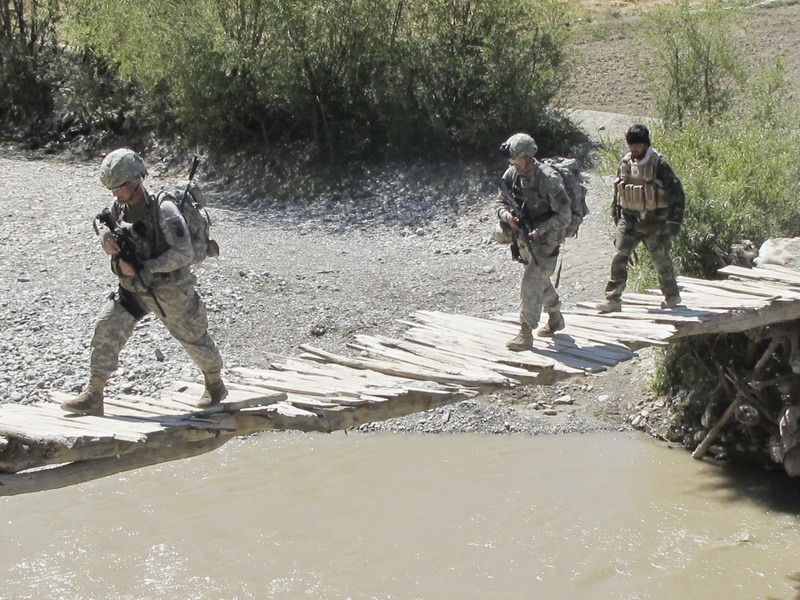The NATO summit is providing confirmation of what many Americans have suspected for some time regarding the war in Afghanistan: It is coming to an end with an outcome much less desirable than what had been promised when the first troops arrived a decade ago.
The “surge” of 2010 was not a game changer. The Taliban have the patience and tenacity to survive whatever we have been able to dish out and know our date for withdrawal.
Despite being unstable, Afghanistan is less of a threat to the world’s security than neighboring Pakistan, which is unstable, too — and is armed with nuclear weapons.
The Afghan government of Hamid Karzai is not going to be the model Western-style democracy once envisioned, and persistent corruption and tribal favoritism means that it’s not likely to get the kind of popular support a real democracy requires.
What’s also clear is that this is all going to have to be good enough because there is little appetite left for this war in the United States or the other NATO countries.
The Obama administration and the NATO leaders have lowered their goals so far that an acceptable outcome in Afghanistan has been achieved. It’s as if they were finally taking the advice that former Vermont Sen. George Aiken is said to have offered the Johnson administration in Vietnam: Declare victory and get out.
But we won’t get out right away and that poses significant danger. Right now, that phased withdrawal still won’t begin for another year and it won’t be complete until 2014, a dozen years after the initial invasion.
In the meantime, there will be fighting and there will be deaths. American names will go on our honor rolls — such a familiar experience that people outside military families have come to see it as routine.
As Americans prepare for Memorial Day weekend, it’s time to reflect once again on the wars in Afghanistan and Iraq, and their costs in lives, treasure and national prestige.
In the end, Afghanistan was not what candidate Barack Obama described as a “smart war,” with clear military objectives and a way out, but another “dumb war” like Iraq, where the liberators soon became a detested occupying army.
The lessons of these wars are not new: Military force works great when you want to topple a government, but not so well when it’s time to build one. Armies can drive out the enemy, but are not so good at making friends.
Just as in Iraq, most of the gains were made in the first weeks, but the final advances took years and came at great cost.
These lessons should be part of the discussion when evaluating future interventions. In the complicated post- 9/11 world, we have to have clearer ideas of the potential of military power and its limits.
Send questions/comments to the editors.



Success. Please wait for the page to reload. If the page does not reload within 5 seconds, please refresh the page.
Enter your email and password to access comments.
Hi, to comment on stories you must . This profile is in addition to your subscription and website login.
Already have a commenting profile? .
Invalid username/password.
Please check your email to confirm and complete your registration.
Only subscribers are eligible to post comments. Please subscribe or login first for digital access. Here’s why.
Use the form below to reset your password. When you've submitted your account email, we will send an email with a reset code.